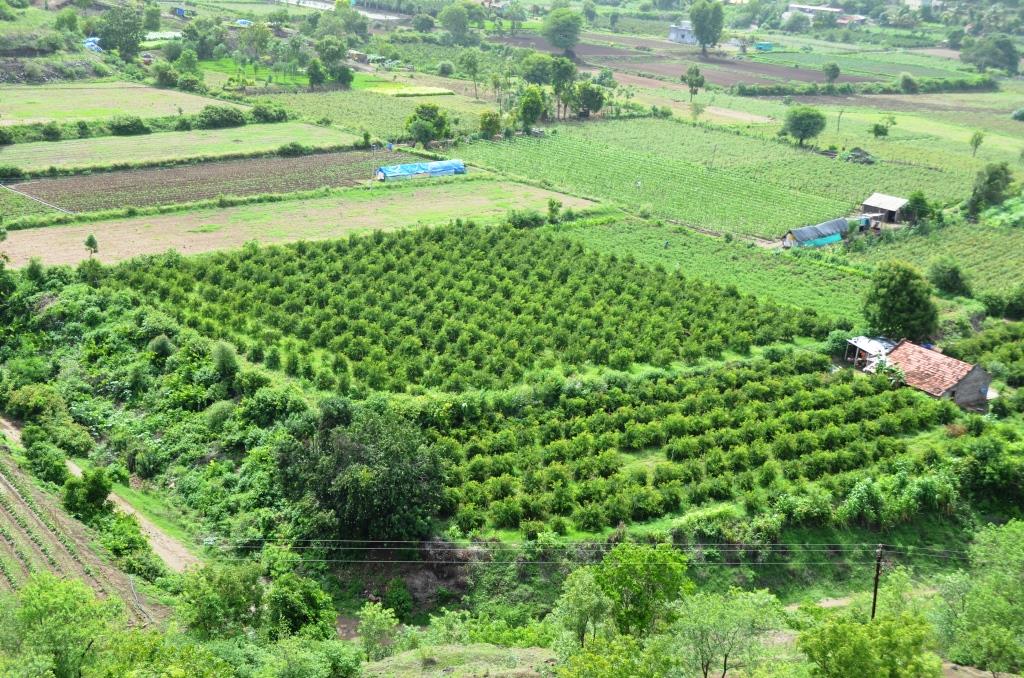Only One Earth: Time to act
We only have one earth – only one place in the whole wide world that we can call home. An earth to live, laugh, grow, and breathe in. The slogan, ‘Only One Earth’, at the 1972 Stockholm conference rings true even today, fifty years later. Yet, like irresponsible children, we grab at what we want with greedy hands, leave a mess behind when we are done playing, and ignore every voice that tries to guide us in the right direction.
Less of the earth
So, how did we reach here? Is this not the same earth that sustained all living creatures for aeons? Like any other entity, the earth is able to generate a fixed amount of ecological resources in a period of time. And we humans have a demand for the same; we use them for our ease and comfort. But what happens when our demands just keep spiralling, and we devour the current year’s resources while also chipping away steadily at any older reserves lying around? Simply put, it means that we take a lot more than what our planet can provide.
Only one Earth
Demands are endless; what stays limited is the resource supply. After all, there is only one Earth that gives us just about everything. And we, in our quest for more and more, are ready to strip our very benefactor of the resources that make our life possible. It is not the earth that has not enough, it is we who clamour for more and more ecological assets every day.
The fault, dear friends lies ‘not in our earth, but in ourselves[1].’

Making the earth whole again
But it is possible to make amends, to make the earth whole again. We are responsible for this mess and we can drive the change to rebuild our lives. The climate crisis is already here, visible through rising temperatures, weather extremes, environmental degradation, and frequent natural disasters across the globe. Food and water insecurity has begun to haunt millions, worsening an already precarious balance among countries.
Adapting to a changing climate
Climate change is happening fast, making our everyday life more and more difficult and the immediate future unreliable. The only way forward is through adaptive solutions and their contextual implementation. Climate Adaptation options generally fall under three categories- structural, social, and institutional. Of course, these are overlapping rather than stand-alone entities, undertaken simultaneously as part of a larger, detailed adaptation plan. These can be something as simple as the inclusion of green spaces and corridors in urban areas, or a myriad of complex measures for river and floodplain rehabilitation and restoration. The adaptation strategy must be robust, resilient, and flexible to respond effectively to possible future scenarios. This is possible only through a focussed political will, and participation of all stakeholders including the vulnerable, with an eye on the long-term perspective.
A nature-based solution
A holistic adaptation strategy, Ecosystem-based Adaptation (EbA) is the use of biodiversity and ecosystem services as part of an overall adaptation strategy to help people adapt to the adverse effects of climate change. A people-centric concept, it recognises the essentiality of a healthy ecosystem for communities to be resilient in the face of the changing climate. For a farmer, this could mean the introduction of heat-resistant crop varieties, for a coastal community safeguarding of mangroves, and for drought areas recharging of groundwater through ponds and forest regeneration.
Turning to nature to retain topsoil cover, cool down rising temperatures and, tackle floods and drought, the idea is simple. Equip and fortify the existing ecosystem to take on the vagaries of climate-induced changes, head-on. This ecosystem and human-centric approach ensure that neither of the two is neglected and both are benefited, increasing resilience as well as reducing vulnerability to climate change.

Making the case for Ecosystem-based Adaptation
Kishan Kashinath Kondar, a farmer from Ahmednagar district, Maharashtra, has done just that. He practises sustainable farming through use of indigenous seeds, organic pesticides and fertilisers, follows mixed crop farming, plants varied fruit trees, and rears livestock, in an area ravaged by drought. Such sustainable and diversified management has increased the resilience of his agricultural system to climate change and has enhanced his earnings.
Bhojdari village in Ahmednagar district of Maharashtra has no steady water source – no river, dam or canal nearby. Yet, it has not faced any acute water shortage for more than two decades. Under the EbA interventions, this village remains tanker free and self-reliant in water even during the relentless summers through its climate adaptive measures.
An IUCN study carried out an economic analysis of EbA measures under the Watershed Development program for the Kumbharwadi rain-fed watershed in Maharashtra. They found that the tangible benefits included improved crop production, higher crop and livestock sales, reduced migration, enhanced drinking water availability, as well as better fuelwood and fodder supplies. The non-market benefits included carbon sequestration, improved biodiversity, pollination and water filtration; improved nutrition and health; increased enrolment in education; community development, and improved resilience to drought. One of the largest economic benefits was the increase in net agricultural income, which jumped nine times!
Only one Earth, just one future
We are at the crossroads, facing unforeseen challenges at a frequency and magnitude never experienced before. The need to slow down and halt climate change is a collective responsibility, one that needs human activity and the environment to coexist and rebuild in tune with each other. And Ecosystem-based Adaptation can be the right transformative action to make this a reality. The time to act, for us and our ‘only one earth’ is now.
[1] https://literarydevices.net/the-fault-dear-brutus/





